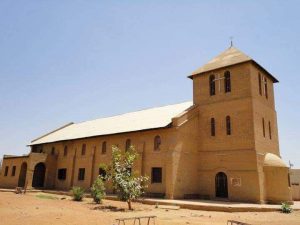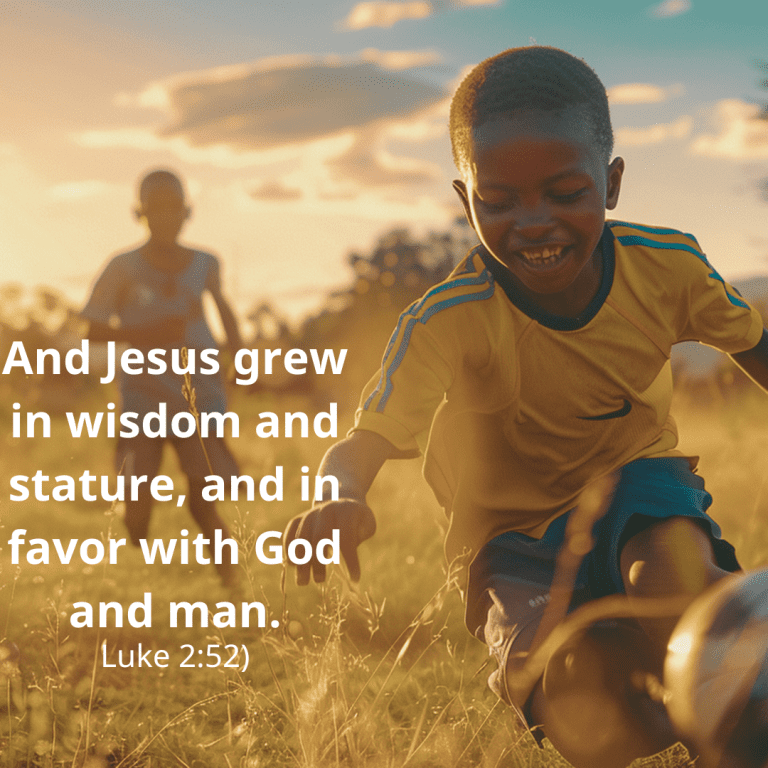
A Fresh Look for a Generation Seeking Real Faith
You’ve probably seen the list on a church wall, a t-shirt, or a Pinterest post:
Love. Joy. Peace. Patience. Kindness. Goodness. Faithfulness. Gentleness. Self-Control.
That’s the fruit of the Spirit (Galatians 5:22–23).
But here’s the thing: these aren’t just “nice Christian traits” you try to copy. They’re evidence that something supernatural is growing inside you, something the Holy Spirit is actively forming. Let’s break them down one by one in a way that speaks to real life.
1. LOVE
“Dear children, let us not love with words or speech but with actions and in truth.” – 1 John 3:18
We live in a world where love is often performative. It’s in captions and emojis, but not always in action. The Holy Spirit teaches us to love people even when they’re difficult, unlovable, or don’t benefit us.
Real love:
- Listens before speaking
- Forgives even when it hurts
- Stays when it’s easier to walk away
2. JOY
“Though you have not seen him, you love him… you are filled with an inexpressible and glorious joy.” – 1 Peter 1:8
Joy is different from happiness. It’s not tied to a vibe, a relationship, or a goal. Joy is deep and steady.
You can be battling anxiety and still carry joy. You can be broke and still feel joy. Why? Because joy is rooted in who God is, not what life looks like.
3. PEACE
“You will keep in perfect peace those whose minds are steadfast, because they trust in you.” – Isaiah 26:3
Peace isn’t passive. It’s fierce trust in the middle of chaos.
For young people constantly hit with bad news, mental pressure, and overthinking, peace feels rare. But the Holy Spirit anchors us when the world spins. Peace shows up in how we handle pressure, stay grounded in prayer, and choose surrender over control.
4. PATIENCE
“Be completely humble and gentle; be patient, bearing with one another in love.” – Ephesians 4:2
We’re an instant generation, streaming, deliveries, dating apps. We’re wired for now.
But spiritual maturity grows in the slow seasons. Patience is learning to:
- Wait without whining
- Love people who don’t “get it” yet
- Trust God’s timeline, not your own
It’s not natural, but it’s powerful and deeply needed in a culture obsessed with speed.
5. KINDNESS
“God’s kindness is intended to lead you to repentance.” – Romans 2:4
Kindness isn’t just random acts. It’s intentional compassion.
It’s DM-ing someone just to check in.
It’s being gentle when you have every reason to be cold.
It’s choosing not to clap back even when you could go viral.
Kindness is powerful because it reflects the kindness God showed us.
6. GOODNESS
“Do not be overcome by evil, but overcome evil with good.” – Romans 12:21
Goodness is about integrity when no one’s watching.
It’s not about being a “good person”, it’s about choosing what’s right, even when it costs you.
It’s:
- Being honest when you could cut corners
- Calling out injustice, even if it’s unpopular
- Living with purity in a world that celebrates compromise
7. FAITHFULNESS
“His master replied, ‘Well done, good and faithful servant!’” – Matthew 25:21
This one’s about showing up in relationships, in responsibilities, and in your walk with God.
Faithfulness says:
- “I’ll keep praying, even when I feel nothing.”
- “I’ll show up for my friends when it’s not convenient.”
- “I’ll follow through on what I said.”
In a culture that glorifies jumping ship, faithfulness is countercultural—and deeply beautiful.
8. GENTLENESS
“Let your gentleness be evident to all.” – Philippians 4:5
Gentleness isn’t weakness. It’s controlled strength.
In a world where loud = power, the Spirit teaches us a quieter strength.
Gentleness shows up when:
- You disagree without disrespecting
- You lead without dominating
- You correct without crushing
Jesus was gentle with the broken and we’re called to be like Him.
9. SELF-CONTROL
“Like a city whose walls are broken through is a person who lacks self-control.” – Proverbs 25:28
Without self-control, everything else crumbles.
It’s the Spirit saying:
- “Don’t send that text.”
- “Pause before you scroll.”
- “Say no when you know it’s not worth it.”
This fruit guards your peace, protects your witness, and empowers you to make decisions that align with your purpose not your impulse.
Final Thoughts: Fruit Takes Time
You don’t become a walking, talking Fruit Basket overnight.
But if you stay rooted in Jesus, the Holy Spirit will grow this fruit in you gradually, powerfully, and authentically.
You might not see it every day. But others will.
And in a world craving something real, the Spirit’s fruit is the loudest quiet message you’ll ever carry.
Ask Yourself:
- Which fruit comes easiest for me?
- Which one is God stretching in me right now?
- How can I lean into the Spirit more today?
Next Step:
If you’re serious about growth, start a “Fruit Check” journal every week, reflect on one fruit and ask:
“How did I live this out or not this week?”
Spiritual growth isn’t about perfection. It’s about progress. And you don’t walk it alone, the Spirit walks with you.

Have you ever wondered if Sudan connects to the ancient stories in the Bible? You may be surprised to learn that the land we call home today has deep ties to both Cush and ancient Egypt—two key regions mentioned in Scripture. Knowing that your country’s history is woven into the Bible can give you a new perspective on your identity and your faith. Let’s explore how Sudan’s biblical connections run through both Cush and Egypt, revealing a heritage that’s been part of God’s story for thousands of years.
A Land of Ancient Power
Upper Egypt refers to the southern part of Egypt, from just south of modern-day Cairo. Ancient Egypt’s southern border shifted during the course of history. South of Egypt we enter the land of Cush, which the Bible associates with modern-day Sudan. The Bible recognizes both Egypt and Cush as powerful regions, and in ancient times, these areas were closely connected through trade, cultural exchange, and even shared rulers.
During certain periods of history, Cushite kings even ruled Egypt, and this blending of cultures has left a lasting impact on both regions. One of the most significant moments in the Bible where this connection is highlighted is through the story of King Tirhakah, a Cushite who ruled Egypt and played a crucial role in the politics of the ancient Near East (Isaiah 37:8-20).
Believers from Cush
One of the most inspiring passages for Sudanese readers is Zephaniah 3:10, where God speaks about a time when His worshipers will come from the land of Cush and beyond.
Zephaniah 3:10 From beyond the rivers of Cush my worshipers, the daughter of my dispersed ones, shall bring my offering.
This shows that the people of Cush, including those from modern-day Sudan, have a special role in God’s plan. The Bible acknowledges the importance of Sudan’s people in worshipping God, and this prophetic vision highlights the fact that Sudan is part of God’s plan for his kingdom.
In this passage, Sudan is more than just a geographical reference—it is a place from where worship and offerings will be brought to God.
A man of faith
The Bible also highlights individuals from the Cush region who had strong faith. One of the most striking stories is that of the Ethiopian eunuch in Acts 8:27-39, who was an important official in the court of Candace (queen) of the Ethiopians. This eunuch was returning from Jerusalem where he had gone to worship, and he was reading from the prophet Isaiah when he met Philip the Evangelist. Philip explained the Scriptures to him, and the eunuch chose to be baptised right away.
Although the passage mentions an Ethiopian, the Greek word may refer to a black man. Cush also means black. Candace may come from the Nubian word for queen. Scholars have different theories on the location of Candace’s country in the region of Sudan and Ethiopia.
This story reminds us that Sudan has a long history of connection to the worship of God. Just as the eunuch eagerly sought to know more about God, Sudanese people today can seek God in the Bible and be inspired to take bold steps in their faith journey.
What Can You Take Away from This?
Sudan’s connection to both ancient Egypt and Cush in the Bible is a reminder of the enduring role your homeland has played in God’s plan. From the powerful kings of Cush who ruled Egypt to the prophetic vision of worshipers coming from beyond the rivers of Cush, the Bible reveals that Sudan’s story is part of God’s greater story.
You are part of a heritage that stretches back to the earliest times recorded in the Bible. The first mention of Cush is already in the description of Eden in Genesis 2:13.
Your land is mentioned in prophecies, historical accounts, and stories of faith. Sudan’s rulers, like Tirhakah, showed strength in times of crisis. Worshipers from Sudan are described as vital in the kingdom of God’s people. And individuals like Candace’s eunuch demonstrated how a personal encounter with the Bible can change your life.
The Bible’s connection to Sudan is not just about the past—it’s about your present and future. God has always had a plan for the people of Sudan, and that plan includes you today.
In Conclusion
Sudan’s biblical heritage through both Egypt and Cush shows that your homeland has always been important in God’s story. From kings and warriors to worshipers and seekers, Sudanese people have played vital roles in the events of the Bible. Sudan is part of a rich Biblical history.
As you explore these biblical passages, let them inspire you to dive deeper into God’s Word. Like Candace’s eunuch, don’t be afraid to ask questions, seek answers, and let the Bible transform your life. Your story is part of God’s story, and the Bible is waiting for you to discover it.

The story of Jesus is the ultimate glow-up, from a newborn in a manger to the Savior of the world. His journey isn’t just inspiring; it’s transformative for everyone who believes. Let’s unpack how Jesus’ humble beginnings and divine mission changed history forever, all rooted in Scripture.
1. A Humble Start
“And she gave birth to her firstborn, a son. She wrapped him in cloths and placed him in a manger, because there was no guest room available for them” (Luke 2:7).
Jesus’ story begins in the most unassuming way imaginable. Born in a small town and placed in a manger because there was no room for His family in the inn, His birth reflected humility and simplicity. The King of Kings arrived without the fanfare one might expect for royalty. Yet, this humble start sets the stage for a life that would redefine greatness, teaching us that our worth isn’t tied to our circumstances but to God’s purpose for our lives.
2. Announced to the Underdogs
“But the angel said to them, ‘Do not be afraid. I bring you good news that will cause great joy for all the people’” (Luke 2:10).
Imagine being a shepherd on a quiet night, and suddenly, the sky lights up with angels announcing the birth of the Savior. The first people to hear about Jesus’ birth weren’t rulers or religious leaders but shepherds, ordinary, overlooked individuals. This choice reflects God’s heart for the marginalized and forgotten. By starting with the underdogs, God showed that His kingdom is for everyone, regardless of status or position.
3. Prophesied to Change the World
“For to us a child is born, to us a son is given, and the government will be on his shoulders. And he will be called Wonderful Counselor, Mighty God, Everlasting Father, Prince of Peace” (Isaiah 9:6).
Centuries before Jesus’ birth, the prophet Isaiah foretold His arrival. This verse captures His divine mission: to bring peace, guidance, and hope to a broken world. Jesus wasn’t just another leader; He was the fulfillment of a promise, the embodiment of God’s love, and the answer to humanity’s deepest needs. His glow-up was written in the stars long before He took His first breath.
4. Growing in Wisdom and Favor
“And Jesus grew in wisdom and stature, and in favor with God and man” (Luke 2:52).
Jesus’ childhood wasn’t skipped over in His story. He grew up like us, experiencing the challenges and joys of life. From His time in the temple as a young boy, astounding scholars with His understanding, to His later years preparing for His ministry, Jesus’ growth shows that even the Savior embraced the process of learning and maturing. This reminds us that growth, both spiritual and personal, is a vital part of God’s plan for our lives.
5. The Moment of Revelation
“Then a voice came from heaven, ‘You are my Son, whom I love; with you I am well pleased’” (Mark 1:11).
At His baptism, Jesus’ identity was publicly affirmed by God Himself. The heavens opened, and God declared His love for His Son, marking the beginning of Jesus’ public ministry. This moment wasn’t just about Jesus, it was a revelation for the world, a confirmation that the Messiah had come to fulfill His divine mission. It was a turning point, transitioning Him from preparation to action.
6. Sacrificial Love for All
“But God demonstrates his own love for us in this: While we were still sinners, Christ died for us” (Romans 5:8).
Jesus’ glow-up wasn’t about personal gain or recognition. It was about love, sacrificial, selfless, and unconditional. His journey led to the cross, where He paid the ultimate price for our sins. This act of love redefined what it means to give, showing that true greatness lies in serving and sacrificing for others. Jesus’ death and resurrection opened the door for everyone to experience God’s grace.
7. Risen and Reigning
“He is not here; he has risen, just as he said. Come and see the place where he lay” (Matthew 28:6).
The ultimate glow-up: Jesus conquered death. His resurrection wasn’t just a miracle; it was the fulfillment of His promise and the foundation of our faith. By rising from the grave, Jesus proved that He has power over sin and death, offering eternal life to all who believe. His reign as the risen Savior continues to transform lives today.
The Bottom Line
Jesus’ journey from the manger to the cross and beyond is a story of transformation, humility, and redemption. His life redefined greatness and brought hope to the world. As we reflect on His glow-up, let’s remember that His story isn’t just history, it’s an invitation to experience a glow-up of our own through faith in Him.

Healing, whether physical, emotional, or spiritual, is something everyone seeks at some point in life. In times of suffering, pain, or brokenness, the Bible offers comfort, hope, and promises of restoration. God is described as the Great Healer who mends our wounds and brings wholeness to every aspect of our lives. Scripture reminds us of God’s ability to restore not just the body, but also the heart, soul, and mind.
Here are seven Bible verses that speak to God’s healing power and offer encouragement for those in need of restoration.
1. Jeremiah 30:17
“But I will restore you to health and heal your wounds, declares the Lord.”
God’s promise in this verse is one of restoration. No matter how deep the wound or how severe the brokenness, God assures His people that He will bring healing. This verse serves as a reminder that nothing is too far gone for God to repair. His desire is to bring health and wholeness to His children, both physically and spiritually.
2. Psalm 147:3
“He heals the brokenhearted and binds up their wounds.”
While physical healing is important, God also tends to the brokenness in our hearts. When we feel crushed by life’s circumstances or overwhelmed by grief, He is near, offering comfort and healing. He binds up the wounds that no one else can see, restoring our inner peace.
3. James 5:14-15
“Is anyone among you sick? Let them call the elders of the church to pray over them and anoint them with oil in the name of the Lord. And the prayer offered in faith will make the sick person well; the Lord will raise them up.”
God invites His people to seek healing through prayer and the support of the community of believers. The act of calling on others to pray in faith demonstrates a trust in God’s ability to heal. This scripture reassures us that God hears and responds to prayers offered in faith.
4. Isaiah 53:5
“But he was pierced for our transgressions, he was crushed for our iniquities; the punishment that brought us peace was on him, and by his wounds we are healed.”
Through Christ’s suffering and death, spiritual healing is made possible for all. His wounds bring us salvation, and in that salvation, we find the ultimate healing for our souls. This verse serves as a reminder of the eternal healing that comes through Christ’s sacrifice.
5. Exodus 15:26
“He said, ‘If you listen carefully to the Lord your God and do what is right in his eyes, if you pay attention to his commands and keep all his decrees, I will not bring on you any of the diseases I brought on the Egyptians, for I am the Lord, who heals you.'”
God reveals Himself as “Jehovah Rapha,” meaning “the Lord who heals.” This verse underscores God’s power and desire to bring healing to His people. It is a reminder that God not only heals, but He also protects and preserves His people when they walk in obedience to His word.
6. Matthew 11:28-30
“Come to me, all you who are weary and burdened, and I will give you rest. Take my yoke upon you and learn from me, for I am gentle and humble in heart, and you will find rest for your souls. For my yoke is easy and my burden is light.”
True healing is found in coming to Him. When life’s burdens become overwhelming, Jesus offers rest and restoration for the soul. His gentleness and compassion bring peace and relief to those who are weary, making Him the source of ultimate healing for our emotional and spiritual struggles.
7. 1 Peter 2:24
“He himself bore our sins in his body on the cross, so that we might die to sins and live for righteousness; by his wounds you have been healed.”
Through Jesus’s death and resurrection, we are offered new life, free from the bondage of sin. The healing referred to here is both spiritual and physical, pointing to the completeness of the restoration that Jesus offers.
Conclusion
Healing is a multifaceted process that touches every aspect of our being—our bodies, minds, hearts, and spirits. These verses remind us of God’s deep care and His promise to heal us in every way. Whether we are seeking relief from physical illness, emotional pain, or spiritual brokenness, the Bible assures us that God is the Great Healer, and His power is available to those who seek Him.
